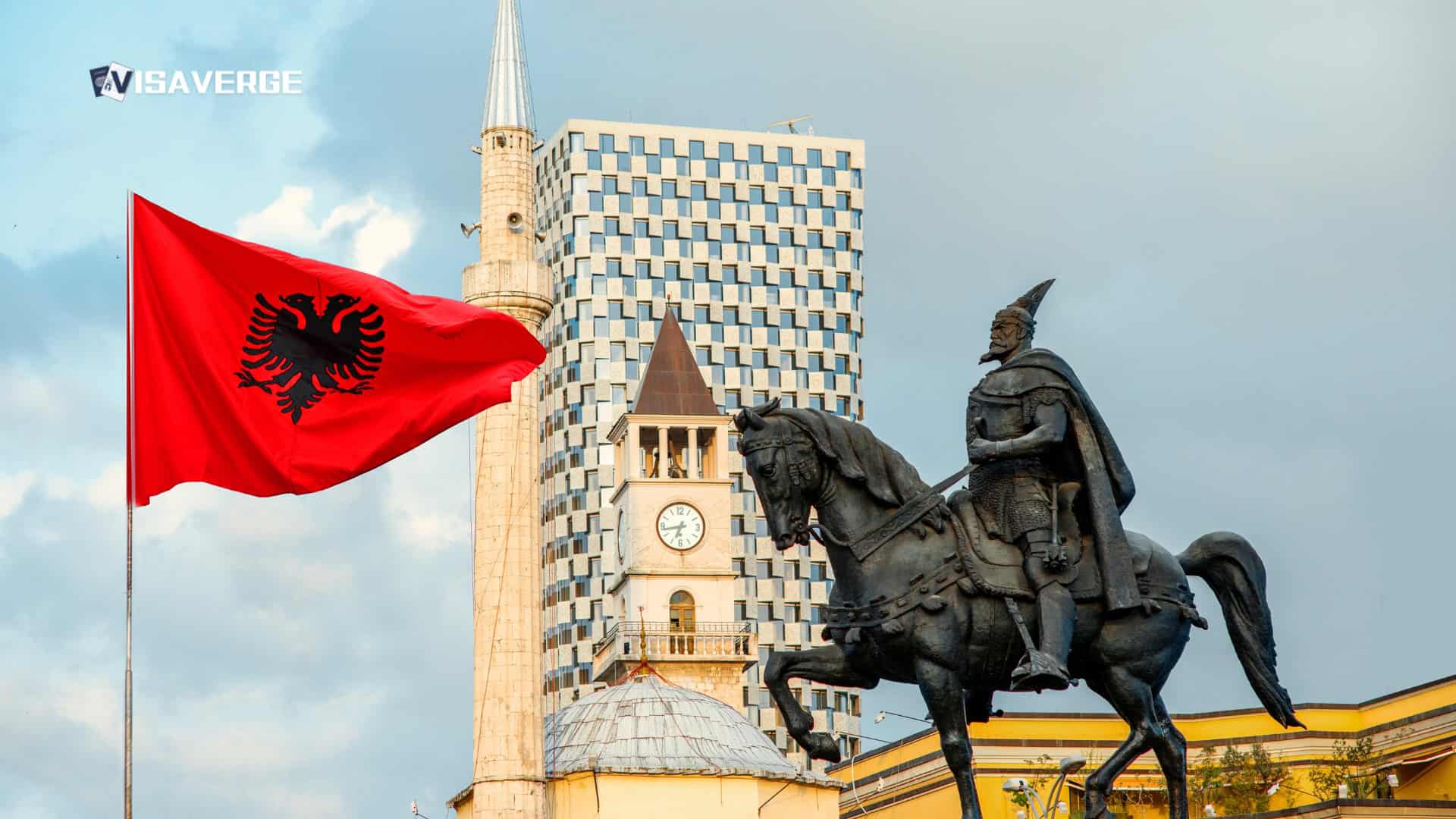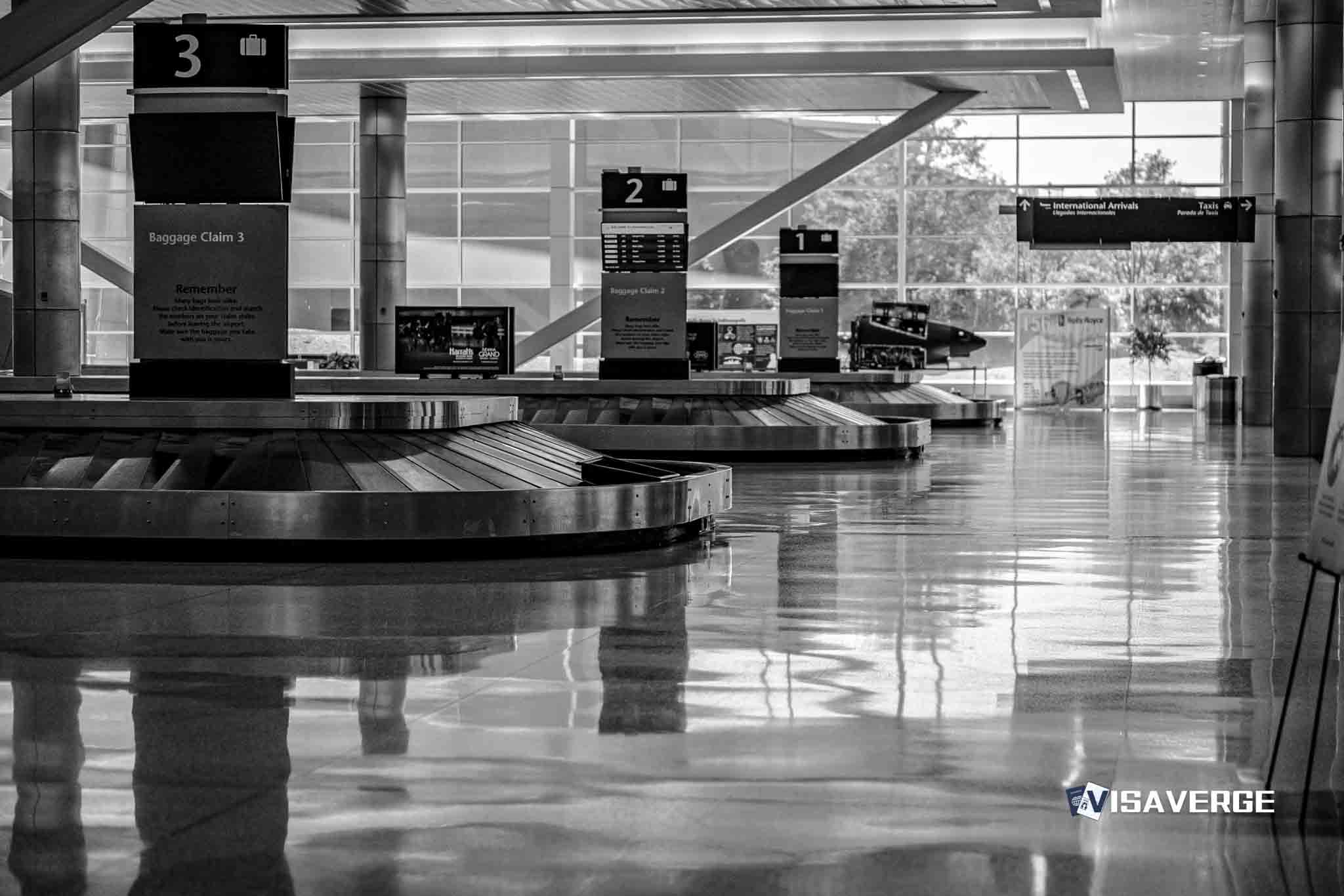(ALBANIA) Albania has set out a predictable, five-year route to permanent residency for foreign nationals, including Indian citizens, under its Law on Foreigners. The path is straightforward: arrive with the right entry document, apply for a residence permit within 30 days, keep your status legal and continuous for five years, then move to an indefinite “Type C” permit that allows you to live and work in the country without time limits. According to analysis by VisaVerge.com, the combination of flexible entry options, modest costs, and improving infrastructure makes Albania an increasingly attractive base in Europe for workers, families, retirees, and remote professionals.
How the process typically begins

The process usually starts with a long-stay Type D visa or a “unique permit”, depending on your purpose in Albania—such as work, business, study, property ownership, family ties, or digital nomad activity. After arrival, you must submit your residence permit application within 30 days.
Many applicants file online through the government’s digital platform, the e-Albania portal. Authorities issue residence permits in intervals—often 3, 6, or 12 months, and sometimes 2 years for certain categories. The key requirement is to keep your status valid without major gaps. After five consecutive years of lawful residence, you can apply to convert to permanent residency (Type C).
Continuity and purpose requirements
Albania’s rules tie your permit to the original purpose of entry. For example:
- If you came for employment, you should maintain employment.
- If you entered as a property owner or business investor, you should keep that property or business active.
The government expects continuity of purpose, proper documentation, and clean compliance throughout the five-year period. Important points:
- Long absences can harm eligibility.
- Late renewals can reset the five-year clock.
- Applicants who renew on time and stay within permitted absence limits preserve their timeline toward permanent status.
Types of permits and who they suit
Temporary and unique permits often integrate residence and work authorization, allowing many people to live and work under the same status. Key categories include:
- Blue Card AL — for highly skilled professionals (modeled on the EU Blue Card).
- Digital nomad — for remote workers and self-employed professionals with remote income.
- Business owner / Investor — separate category for entrepreneurs.
- Family reunification — for dependents of permit holders.
- Study and research — permits for students and researchers.
- Retirees — permitted with proof of pension income and health insurance.
- Property ownership — supports an application; no fixed minimum purchase amount is written into law for this route.
Required documents (common core items)
Applicants should plan documents carefully. Core items commonly include:
- Valid passport
- Police clearance from your home country (translated and apostilled or legalized)
- Proof of accommodation (lease or deed)
- Health insurance that covers you in Albania
- Proof of funds or steady income
- Passport photos
- Completed application forms
- Evidence matching the purpose of stay (employment contract, company registration, property certificate)
- Local address registration
- At renewal, evidence that your purpose remains consistent
Important: Police certificates must be legalized or apostilled and translated. Small errors—misspelled names, mismatched dates, missing apostilles—often cause delays or refusals.
Application, processing times and fees
- The online residence permit application is accessible through the e-Albania portal, which serves as the official gateway for filing and tracking.
- Processing times vary; several weeks is typical, though some cases may take a few months.
- State fees are generally modest compared with many Western European countries, but translation, legalization, and legal help can add costs.
- Many applicants renew annually, updating documents as required and keeping records to show continuous legal residence over five years.
Step-by-step policy pathway (summary)
- Entry document: Begin with a Type D visa or a unique permit for your purpose (work, business, property, family, study, digital nomad, retirement).
- First 30 days: Apply for a residence permit within 30 days of arrival via the e-Albania portal.
- Maintain status: Renew permits as required (often 3, 6, or 12 months; sometimes 2 years) and keep a full five-year continuous lawful residence.
- After five years: Apply for permanent residency (Type C) — grants indefinite stay and work rights if you meet continuity, purpose, and good conduct requirements.
Impact on different applicant groups
Workers and Employers:
– Many permits combine residence and work rights, simplifying employment of foreign hires.
– The Blue Card AL supports highly qualified professionals in demand.
Remote Workers and Freelancers:
– Digital nomads can apply based on remote income, with annual renewals contributing to the five-year total.
Families:
– Dependents can often be included on several routes, enabling children to attend schools and spouses to work where permitted.
– Continuity rules still apply; families must renew on time and keep insurance and address records updated.
Students and Researchers:
– Study-based permits can count toward the five-year requirement if status stays lawful and continuous. Maintain enrollment and renewals without gaps.
Property Owners:
– Buying property supports residence permit applications. There is no fixed minimum purchase value in law for this route, but you must keep valid ownership proof and meet other requirements.
Retirees:
– Retirees with stable pension income and health insurance can settle in Albania and build toward permanent residency after five years.
Practical advice and common pitfalls
- Renew permits before they expire.
- Keep your address updated and save all receipts and approval notices.
- Avoid long absences; keep copies of entry and exit stamps to demonstrate presence.
- If your purpose changes (e.g., study to work), get the new status approved—do not let the original purpose lapse.
- Budget for translation, notarization, and possible legal assistance.
- Professional review helps prevent simple mistakes, but many people successfully manage the process themselves via online filing.
Why demand is rising
Albania offers a rare blend of advantages:
- Lower living costs compared with many European capitals
- Clear five-year pathway to permanent residency
- Flexible entry and permit options (property, entrepreneurship, remote work, study, family)
- Ongoing legal and economic reforms aligning with EU standards
- For workers and small business owners, a permit that combines residence and work rights reduces administrative friction
- For Indian nationals, Albania is a viable alternative as some traditional destinations tighten rules
VisaVerge.com reports that Indians who meet stay requirements and keep paperwork in order are finding Albania a practical European base with a realistic path to long-term settlement. Indians can use property ownership, business investment, remote work, study, or retirement as valid bases for residency.
Caveats and final checklist
Officials emphasize compliance and clear documentation. Key reminders:
- The continuity rule is strict.
- Renew early and avoid gaps.
- Keep a clear record of:
- Passport validity
- Apostilled police clearance
- Translated documents
- Address registration
- Health insurance
- Proof of purpose (employment contracts, property deeds, company registration)
- At the five-year mark, be prepared to show clean continuity and financial stability to secure permanent residency and settle long term.
Final takeaway: Start with the correct entry permit, maintain lawful and continuous status for five years, keep documentation meticulous, and you can convert to indefinite Type C residency — gaining the right to live and work in Albania without time limits.
This Article in a Nutshell
Albania’s Law on Foreigners establishes a predictable five-year pathway to permanent residency. Foreign nationals should enter with a Type D visa or unique permit, apply for a residence permit within 30 days via the e-Albania portal, and keep continuous lawful status through timely renewals—permits commonly last 3, 6, 12 months, or sometimes 2 years. Eligible routes include employment (Blue Card AL), business investment, property ownership, digital nomad status, study, family reunification, and retirement. Key requirements include apostilled police certificates, proof of accommodation, health insurance, and evidence of funds or income. After five consecutive years of compliance and continuity of purpose, applicants may convert to an indefinite Type C permit. Applicants should avoid long absences, ensure accurate translations and apostilles, and budget for translation and legal costs.













